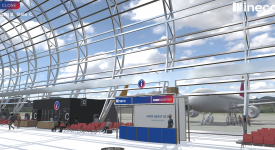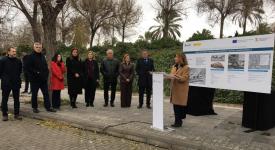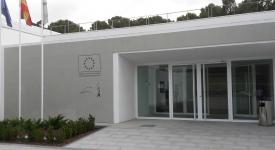Aena, Ineco and Iberia to carry out environmental study in Barajas

Aeropuertos Españoles y Navegación Aérea (AENA) has announced that it will carry out a study, together with Ineco and Iberia, to verify the environmental benefit of the use of continuous descent approach (CDA) manoeuvres in airport environments.
According to AENA, the study consists of using these approach manoeuvres by some of the flights that land at Madrid-Barajas Airport in order to evaluate the reduction in acoustic pollution and CO2 emissions in a real environment.
The Iberia flights that will participate in this project are authorised to carry out CDA manoeuvres at night, between 00:00 and 06:00 am, throughout the summer.
The airplanes will perform continuous descent approaches without horizontal sections, as they do now, with low engine power. The A320 and A340 aircraft models will be participating in the test.
The results of the study will be used as a tool to prepare a CDA manoeuvre Implementation Plan at Spanish airports, after a detailed analysis of each of the 47 aerodromes of the network in which the characteristics of the airport environment and traffic demand will be determining factors.
AIR PROJECT: REDUCE IMPACT PER FLIGHT BY 10%.
This initiative falls within the AIRE (Atlantic Interoperability Initiative to Reduce Emissions) project, an agreement reached between the European Commission and the Federal Aviation Authority (FAA) that aims to optimise air transport operations from an environmental perspective.
The implementation of the AIRE project in Europe will be the responsibility of the SESAR Joint Undertaking which, under the auspices of the European Commission and Eurocontrol, is carrying out the European SESAR programme (Single European Sky Implementation Master Plan), which intends to implement a high-performance Air Traffic Management Office by 2020 which will allow a higher traffic volume to be managed, at a lower cost and with less environmental impact, while maintaining maximum safety levels.
One of SESAR's priorities is to reduce the environmental impact of each flight by 10%. This initiative, which brings together airlines, suppliers, airports and industry, is expected to be implemented in several European Union countries, including Spain (Madrid-Barajas Airport), France (Paris-Charles de Gaulle Airport), Portugal and Sweden, among others.
In Europe, this project will involve more than 200 flights in 2009, which will allow the reduction in the environmental impact to be assessed in all phases of flight (both en route and on approach) through a reduction in gas emissions, fuel savings and mitigation of aircraft noise.
































